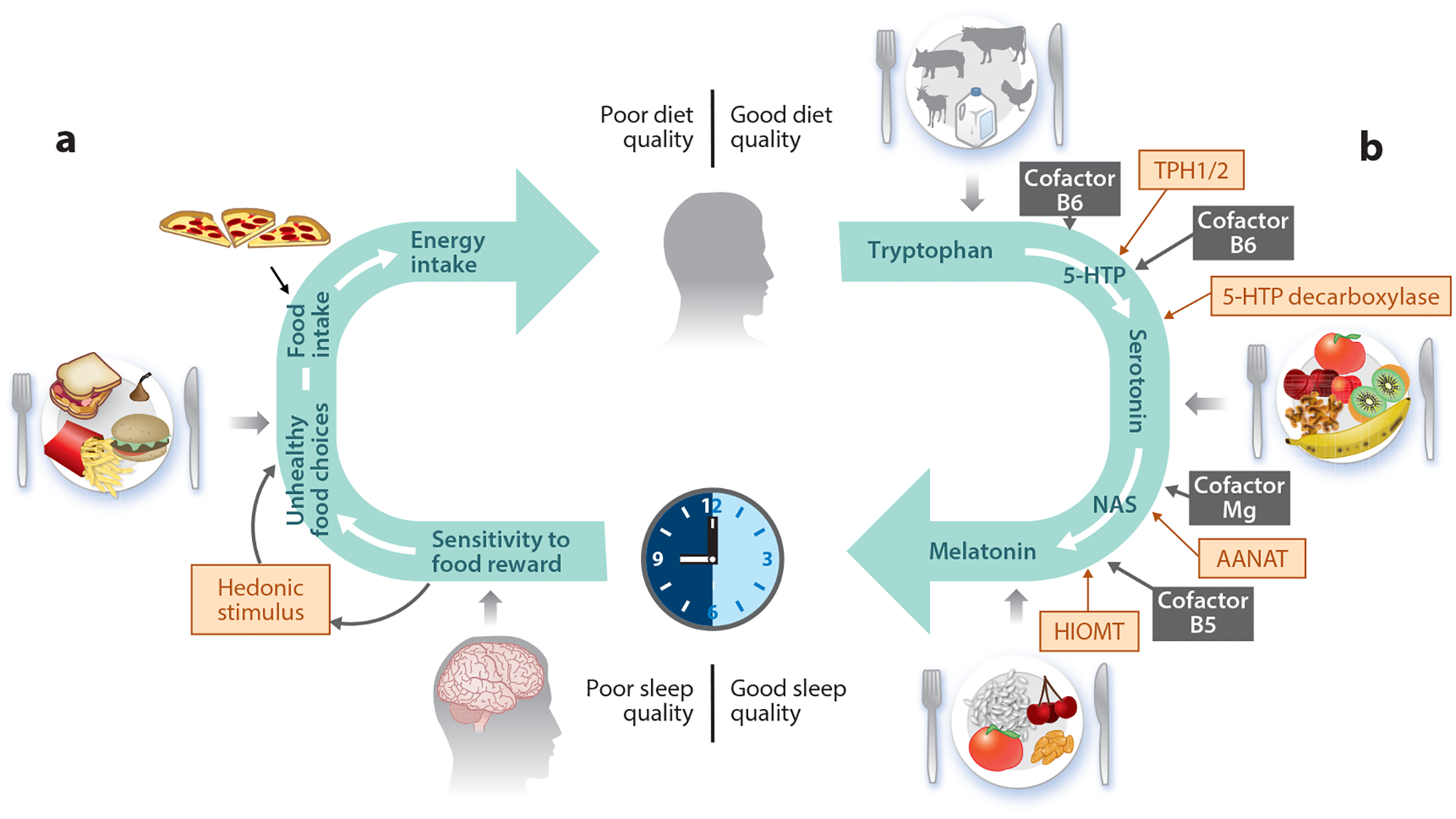Figure 1.

The cyclical nature of the sleep–diet relationship. (a) Mechanisms by which sleep influences food selection and energy intake. Poor sleep increases sensitivity to food reward and may alter taste sensitivity or perception as well as release of appetite-regulating hormones, leading to selection of energy-dense foods and increased snacking. (b) Pathway by which a healthful diet rich in food sources of tryptophan, serotonin, or melatonin leads to good-quality sleep. The correct functioning of the sleep–wake cycle is promoted by melatonin, exclusively synthesized from dietary tryptophan, via serotonin, obtained from ingested foods. Melatonin is synthesized enzymatically by the sequential actions of four enzymes (TPH1/2, 5-HTP decarboxylase, AANAT, HIOMT) and requires Mg and B vitamins as cofactors. Abbreviations: AANAT, arylalkylamine N-acetyltransferase; HIOMT, hydroxyindole-O-methyltransferase; 5-HTP, 5-hydroxytryptophan; Mg, magnesium; NAS, N-acetylserotonin; TPH1/2, tryptophan hydroxylase.
